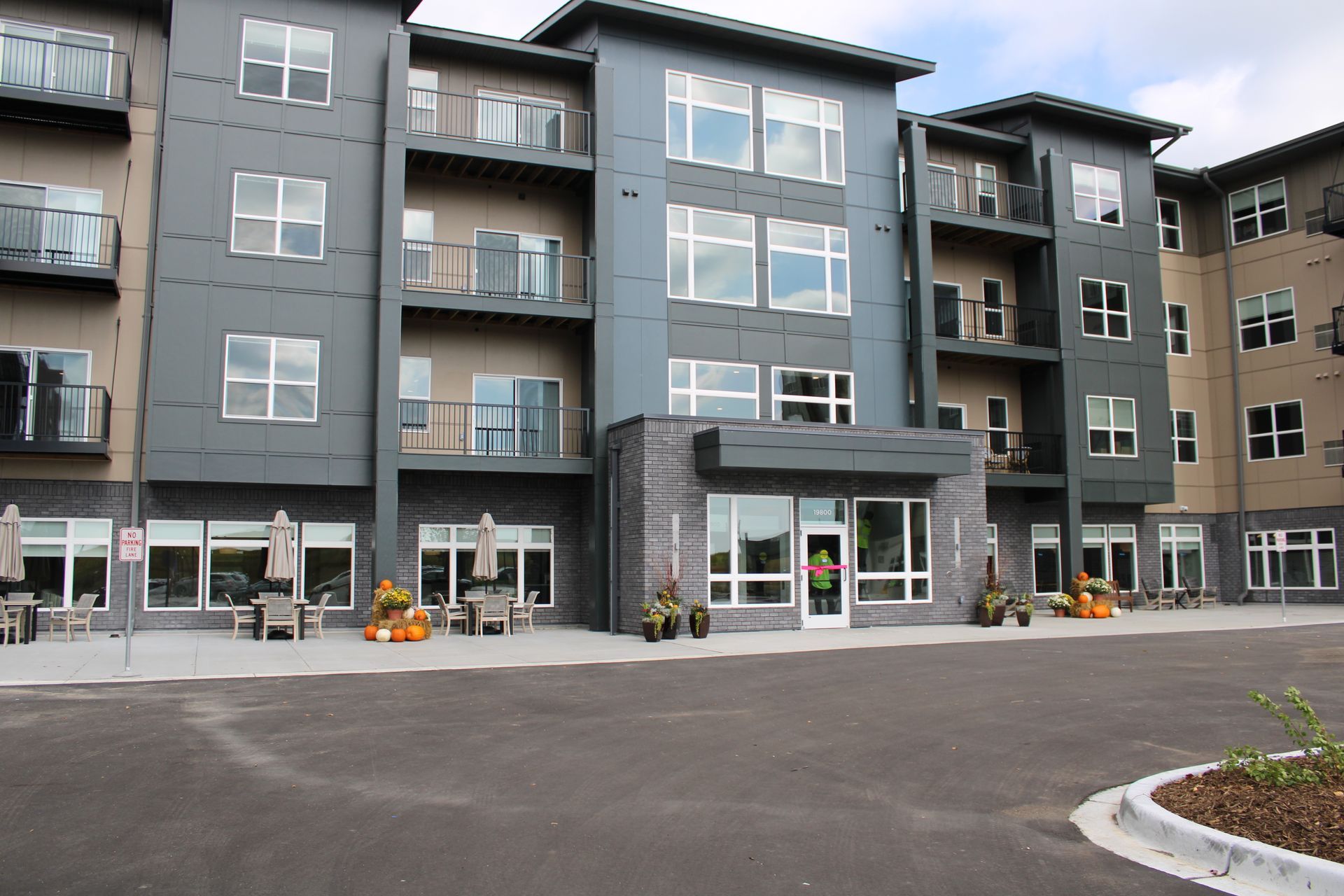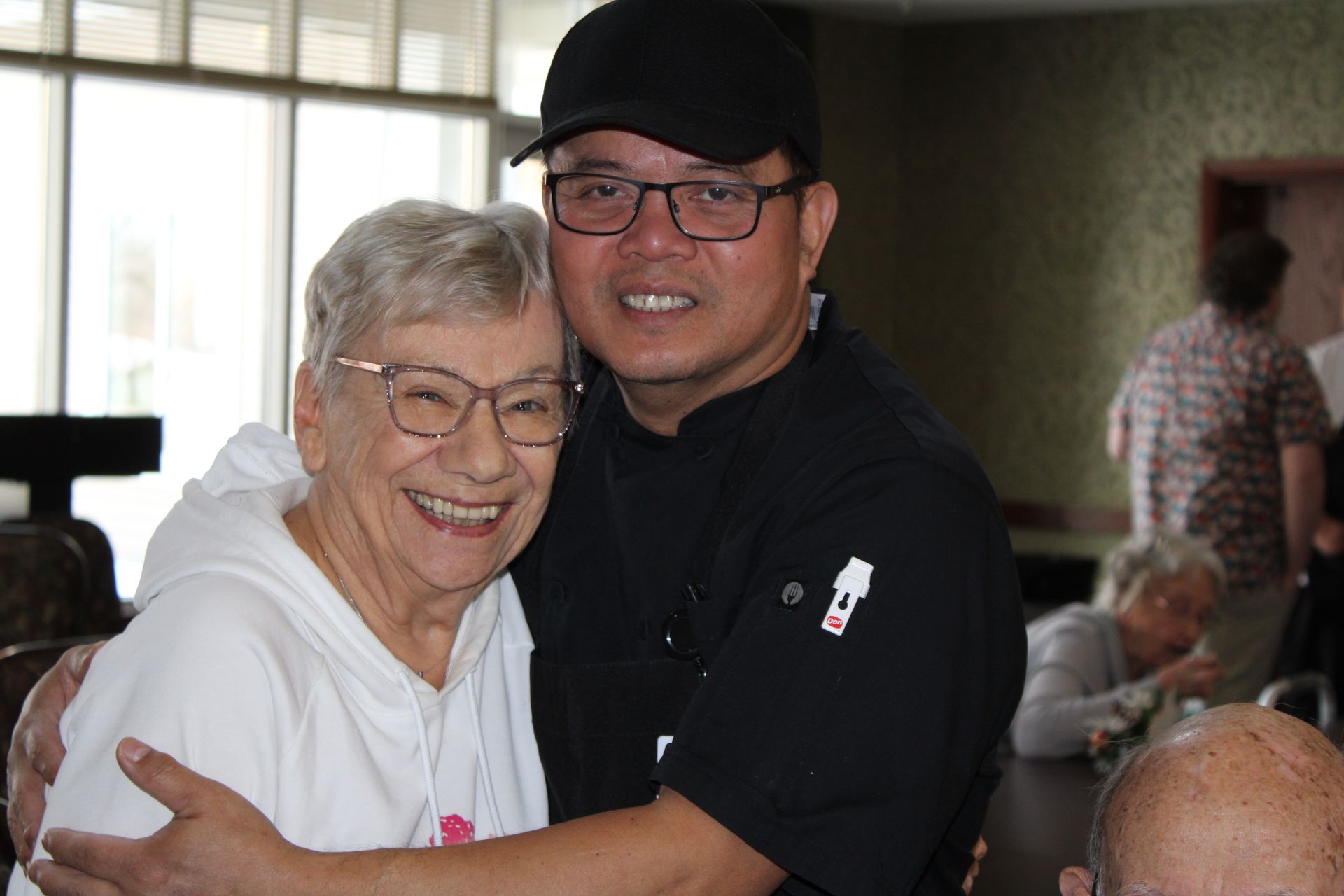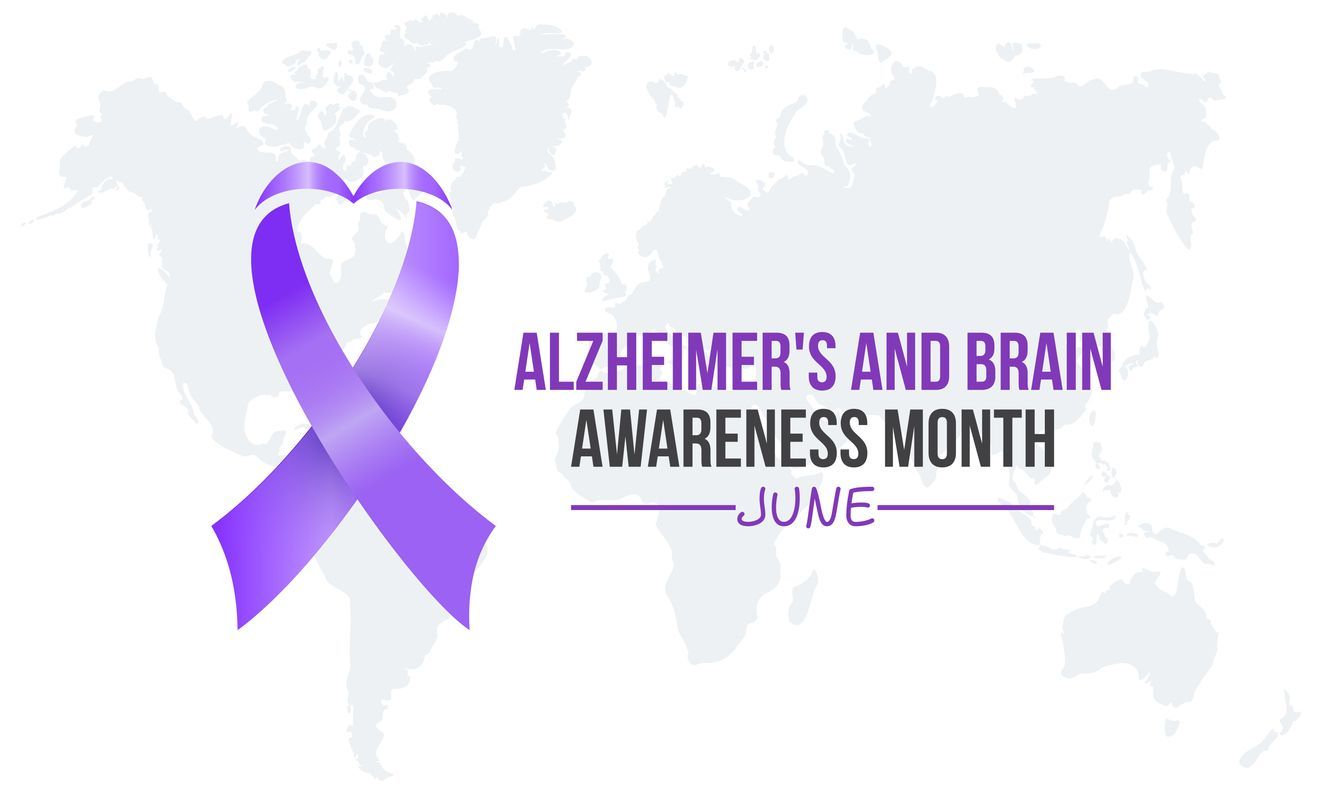
Training Our Staff on Alzheimer’s and Dementia Care
It seems nearly every family is impacted by Alzheimer’s disease or other forms of dementia. In fact, worldwide, Alzheimer’s accounts for 60 – 80 percent of dementia cases and more than 55 million people are living with Alzheimer’s or another form of dementia. And its ripple effects reach millions more – families, friends and caregivers.
Since caregiving is our lifeblood at Saint Therese, and with June being Alzheimer’s and Brain Awareness Month, we’re going to tell you about a program we have that helps educate our caregivers on the best ways to provide care for those living with dementia.
In 2022, Saint Therese began a significant effort to train all of our assisted living staff on the complexities of dementia care. The company-wide effort was possible thanks to a $40,000 unrestricted estate gift received in 2021. The anonymous donor had no significant connection to Saint Therese other than an interest in supporting Catholic organizations in the future.
Recognizing the prevalence of dementia in older adults, our leadership made the decision to use the gift to fund Dementia Capable Care Training (DCC) by Milwaukee-based Crisis Prevention Institute (CPI).
Jessica Gier, vice president of Clinical Operations, and Dinah Martin Kmetz, former administrator and leader of a dementia task force, worked to get this effort off the ground. Both said they chose DCC because of its hands-on training and its focus on person centered care.
While dementia training has long been required by the State of Minnesota, and by Saint Therese, the new Assisted Living licensure requires all new hires to have eight hours of dementia training if they work in a community that has residents with dementia.
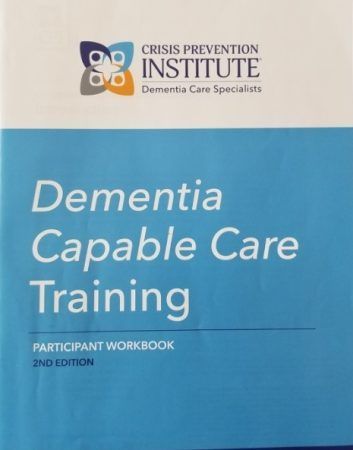
Gier said the DCC training is unique because its core philosophy embodies an abilities-approach to care, rather than a focus only on the limitations dementia may create for a person. Students learn strategies for matching care approaches to cognitive levels/dementia stages and facilitating a person’s best ability to function.
Among the many things addressed in training is the use of language, for instance, people shouldn’t identify people with a diagnosis. CPI trainer Sharon Jackson said, “I’m not a person with high cholesterol, but we say, ‘she’s a woman with Alzheimer’s.” Jackson also doesn’t like the word “sundowning,” because it’s not a diagnosis; these people are trying to communicate something. “If we change our words, we will change our action.”
Training began in April 2022 to “train the trainers.” Jackson spent two days with the administrators and nurse leaders at Saint Therese of Oxbow Lake, Saint Therese of New Hope and Saint Therese of Woodbury, to ground them in the essence of “Dementia Capable Care.”
Training then began, and continues, with all staff, and consists of four hours of computer based training and four hours of classroom training.
Barb Hanle, staff development director at
Saint Therese at Oxbow Lake, trains employees on DCC and fully appreciates its value. “I am passionate about dementia training for a few reasons, my mother lived at Saint Therese of New Hope and had dementia. Watching her progress through the stages of dementia was difficult for my family. I believe helping staff be prepared and have the tools to work with seniors with dementia is going to improve the quality of life for the residents,” she said.
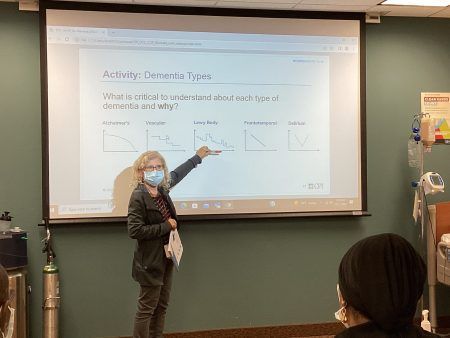
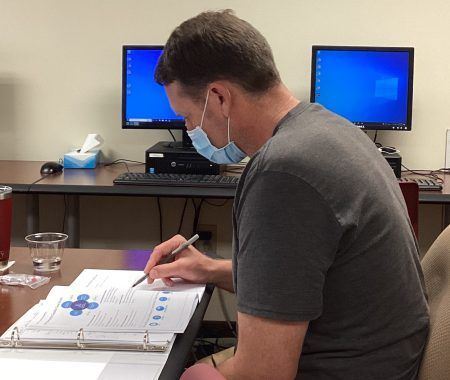
Joe Linhoff, maintenance technician at Oxbow Lake, took part in training last fall. He said that while he doesn’t provide care to residents, he interacts with them every day and the training helped him better understand the levels of dementia and the behaviors that it can cause.
There are two important outcomes from DCC said Martin Kmetz. “The ultimate goal is to help our residents with dementia be as successful as long as they can. And we also want to retain good staff; in order to do that we need to give them the tools to help our residents achieve that success.”
About
At Saint Therese, our heartfelt purpose since 1968 has been a people first approach to living well by providing senior care and services where every life we touch feels welcomed, respected, and heard. We achieve this by doing ordinary things with extraordinary love every single day. Contact us to learn more.
